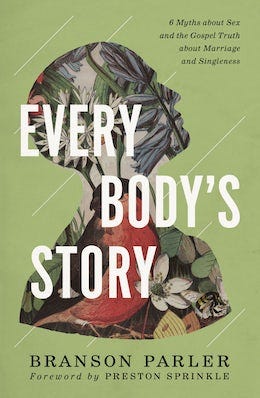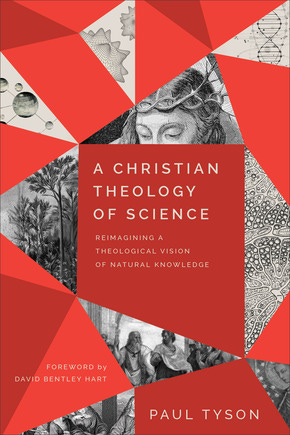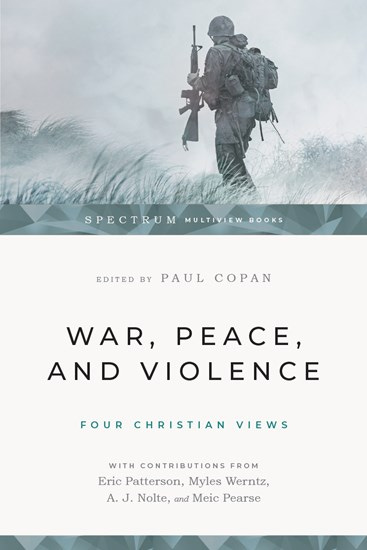As biblical scholar Bruce Birch wrote, Old Testament texts “are rooted in a cultural context utterly unlike our own” with an outlook that is often “alien and in some cases repugnant to our modern sensibilities.” In light of such concerns, author Mathew Richard Schlimm asks: What if we approached the Old Testament’s laws and historical narratives with charity rather than suspicion? That is, we show a willingness to understand them in their historical context and allow them to speak. It’s like wanting to learn from an old friend who is introducing a different culture and country to us. What if we sought first to give the benefit of the doubt? Consider a “golden rule” of interpretation: treat another’s writing as you yourself would want your own writing to be treated. This doesn’t mean being naive or uncritical; it does mean being charitable and fair as we honestly examine challenges in the text.
As traditional, Bible-believing Christians, one problem we readily see with some of our critics from without—who may be non-Christians, but particularly those of the New Atheist variety—is that they tend to pounce on any biblical text that strikes them as harsh or wrathful or strange. They aren’t too concerned about nuance or context, nor are they very open to reasoned explanation or discussion. For example, they may ignore references to God’s patience with stubborn Israelites or his sorrow at human sin. Or they latch on to the word “slave” in the Old Testament—an unfortunate rendering, as we’ll see—and they automatically assume this is identical to “Southern slavery.”
On the other side, critics from within—that is, within the church—may recoil at biblical references to God’s severity and forcefulness (“violence”); they emphasize God’s kindness and love, as displayed in Jesus on the cross. These insider critics consider this Old Testament severity to be a mistaken portrayal of God by fallen, violence-prone biblical authors and prophets. Yet we’ll see that New Testament authorities—and even Jesus himself—carry on the severity that most people restrict to the Old Testament. Jesus viewed himself as carrying on the calling and task of those prophets.
In light of the dual biblical affirmation of God’s kindness and severity (Rom. 11:22), for our critics from without, we want to emphasize that God is far more loving, kind, patient, tender, and merciful than we could ever know. Throughout the Old Testament we see language of God attempting to woo his people back to himself (Hosea 2:14), being hurt by their rebellious hearts (Ezek. 6:9), longing to show mercy (Isa. 30:18) and to provide for them (Ps. 81:10–16), and pleading with them to return to him (2 Chron. 36:16). He patiently waits half a millennium (from the time of Abraham to the time of Joshua) to bring judgment on the “disobedient” Canaanites (Gen. 15:16; Heb. 11:31), and he is willing to relent in judgment if any people turn from their wickedness (Jer. 18:7–8; Jon. 4:2).
And for our critics from within, we emphasize that God is more severe and harsh and unsafe than they suggest. For those who oppress, dehumanize, defraud, mislead, and live hypocritically, divine wrath is the appropriate, just response, as it is to other objective moral evils. Thankfully, the God-created world we inhabit is one that guarantees cosmic justice will be done.
The theologian Stanley Hauerwas has offered this critique of someone’s unorthodox view of God: “One of the things that bothers me about [his] God is that she is just too damned nice!” Putting it another way, Garret Keizer writes, “The Lord my God is a jealous God and an angry God, as well as a loving God and a merciful God. I am unable to imagine one without the other. I am unable to commit to any messiah who doesn’t knock over tables.”
The former nun Karen Armstrong wrote rather simplistically: “It is wonderful not to have to cower before a vengeful deity, who threatens us with eternal damnation if we do not abide by his rules.” Conor Cunningham—a religious scholar—responded: “Imagine if Hitler rather than an ex-nun had written those words.” To stress either divine kindness or divine severity at the expense of the other results in a skewed moral picture. Neither the critic from without (like Armstrong) nor the critic from within strikes the right balance.
Not that I myself presume to have attained the perfect balance with all moral questions tidily resolved. But as we look especially at the critics from within, I find too many inconsistencies and a good deal of selectivity to affirm the direction they take. I wish things were as easily resolved as they suggest!
A Quick Word on God and Violence
Before getting further underway, we should note that the Old Testament does not ascribe “violence” (hamas) to God or to righteous humans or nations using physical force in a righteous cause. Rather, that word is associated with wicked, law-breaking, oppressive human beings; they injure, wrong, or harm physically or nonphysically. Without creaturely sin and violence, divine wrath and judgment wouldn’t occur.
We could say that God uses just coercive physical force in response to human violence and oppression. So even though we make reference to divine violence or divine counterviolence in response to human sin, keep in mind that such language is a concession to a conventional way of speaking. Scripture itself doesn’t refer to God as violent.
---
Excerpted from Is God a Vindictive Bully? Reconciling Portrayals of God in the Old and New Testaments (Baker Academic, 2022).
“Do you have a problem with something, or a lot of things, in the Old Testament? Paul Copan has provided a virtual encyclopedia of helpful answers to frequently asked questions that trouble many readers. He tackles a whole range of objections that arise both from those who claim broad Christian allegiance to the Bible as a whole and from those who make no such claim whatsoever and use the Old Testament as a major reason for their hostility. This is a thoroughly detailed reference work that those of us who teach or preach the Old Testament will turn to frequently, or point others to, when such questions are aired. An excellent resource indeed!”
— Christopher J. H. Wright, global ambassador and ministry director, Langham Partnership; author of Old Testament Ethics for the People of God
Find Is God a Vindictive Bully? at Amazon, Baker Publishing Group, and other major booksellers.
— Paul Copan is the Pledger Family Chair of Philosophy and Ethics at Palm Beach Atlantic University. Learn more about Paul and his work at paulcopan.com.
Every Body's Story
6 Myths About Sex and the Gospel Truth About Marriage and Singleness
In Every Body's Story, Branson Parler focuses on three predominant myths of sexuality in our secular age—individualism, romance, and materialism—and three dominant myths in Christian circles—anti-body theology, legalism, and the sexual prosperity gospel—exploring how those stories shape our practice. Our views of sexuality and our practices around sex are never just about sex. How we use and view our bodies reveals who/what we think God is (or is not) and who we are.
If we truly understand the biblical logic of marriage, sexuality, and singleness—that they are meant to embody the gospel—then we will better understand why this witness is so vital. As God's self-giving faithfulness is put on display by both married and single Christians, those formed by our secular age will have to ask: What if it's true? What if there's more? What if God really does love us that much? Rather than viewing our sexuality as an isolated matter of ethics, we can see how the gospel places our sexuality in the context of God's rescue mission of the world.
“It is hard to imagine a more timely and articulate theology of bodies, sex, and marriage. Branson Parler has masterfully diagnosed what ails both our culture and our churches' sexual thinking and practice. Every Body's Story is biblically adept, historically aware, culturally astute, and philosophically sophisticated. At the same time, it is imminently practical and hauntingly convicting. I truly wish someone would have given me this book decades ago!”
— John Nugent, professor of Bible and theology, Great Lakes Christian College
See our Worldview Bulletin excerpt from Every Body’s Story here.
Find Every Body’s Story at Amazon, Zondervan, and other major booksellers.
A Christian Theology of Science
Reimagining a Theological Vision of Natural Knowledge
This book reframes the discussion between Christian theology and contemporary science, arguing that it is good both for religion and for science when Christians treat theology as their first truth discourse.
Paul Tyson argues that creedal Christianity has much to contribute to the ongoing conversation. He explains that the three usual approaches to science and religion—opposition, demarcation, and synthesis—assume that fixed and essential definitions of science and religion are possible. However, both science and religion as we actually practice them are historically situated ways of engaging with the natural world and transcendence that are in a continuous process of development and decay. We have come to separate natural knowledge (science) from faith and moral beliefs (religion), leading to serious difficulties in integrating knowledge and meaning, facts and values, and immanence and transcendence.
At the root of these dissonances is the difficult relationship between a naturalistic philosophy that purports to be a scientific realism and the things that make us human: transcendence, faith, meaning, and purpose. This is the result of science displacing Christian theology as Western modernity's first truth discourse. However, Christian theology contains deep resources in its approach to knowledge and reality that have not been brought to the science and religion conversation since the late nineteenth century.
This book contains an intellectual history of theology's engagement with science during the modern period, critiques current approaches, and makes a constructive proposal for how a Christian theological vision of natural knowledge can be better pursued.
“This is a bold book, destined to become a classic. Cutting through the clutter of worn-out science-and-religion debates, Paul Tyson reclaims theology as the first truth discourse that tells us what science is and how it should function. Rather than look through the lens of science to theology, A Christian Theology of Science turns the telescope around and asks us to consider the scientific implications of creedal Christianity. Tyson's book is both erudite and lucid. Rarely have the foundations of modern science been subjected to a more penetrating critique.”
— Hans Boersma, Saint Benedict Servants of Christ Chair in Ascetical Theology, Nashotah House Theological Seminary
See our Worldview Bulletin excerpt from A Christian Theology of Science here.
Find A Christian Theology of Science at Amazon, Baker Academic, and other major booksellers.
Truth Changes Everything
How People of Faith Can Transform the World In Times of Crisis
By Jeff Myers, Ph.D., President of Summit Ministries
As a university student, I was taught that the world was stuck in the Dark Ages until the Enlightenment, when reason replaced revelation. Smart people quit believing in a personal God. The rejection of God, I was told, paved the way to a new era in science, technology, the modern managed economy, and personal—especially sexual—freedom. This “just so” story is false.
In my book Truth Changes Everything, I share stories of theologians, educators, scientists, architects, political theorists, and artists whose full embrace of Truth as revealed in Jesus set the world on a self-correcting course of flourishing.
The battle over truth has reached a fever pitch in our own day. Against the trend of “speaking your truth,” it is up to believers to “seek the truth” and to remind the world that Truth isn’t just a set of logical propositions; it is a person. It is Jesus. And that truth changes everything.
“This book is perfectly titled because truth does change everything. It changes whether we live in hope, love, and faith or fear and despair. Dr. Myers lays out what is at stake in the battle for Truth and offers a road map for how Truth can be known and experienced. This is a timely, insightful, and story-filled book.”
— Sean McDowell, Ph.D., author of Chasing Love and A Rebel's Manifesto
Get the first chapter online for free at TruthChangesEverything.com. Buy Truth Changes Everything at Amazon, Baker Publishing, and other major booksellers.
War, Peace, and Violence
Four Christian Views
In a world of war, terrorism, and other geopolitical threats to global stability, how should committed Christians honor Jesus Christ and his Word?
How should Christians think and act when it comes to church-state relations, the preservation of order, the practice of just peacemaking, and the use of coercive force?
In this volume in IVP Academic's Spectrum series, four contributors—experts in Christian ethics, political philosophy, and international affairs—offer the best of current Christian thinking on issues of war and peace. They present four distinct views:
Eric Patterson, just war view
Myles Werntz, nonviolence view
A. J. Nolte, Christian realist view
Meic Pearse, church historical view
Each contributor makes a case for his own view and responds to the others, highlighting complexities and real-world implications of the various perspectives. Edited and with an introduction and conclusion by the philosopher Paul Copan, this book provides a helpful orientation to the key positions today.
“Key to understanding one's own views on a subject is the requirement that one charitably considers legitimate alternatives. These four authors reliably map the terrain on war, peace, and violence in a way that will help readers sort out their own views on these perennial topics.”
— C. Ben Mitchell, Graves Professor of Moral Philosophy at Union University
See our Worldview Bulletin excerpt from War, Peace, and Violence here.
Find War, Peace, and Violence: Four Christian Views at Amazon, InterVarsity Press, and other major booksellers.
*All the posts above are sponsored.
Advertise in The Worldview Bulletin
Do you have a book, course, conference, or product you’d like to promote to 5,100 Worldview Bulletin readers? Click here to learn how. We’re currently booking for November and December.
Your support makes The Worldview Bulletin possible! We couldn’t do this without the support of you, our readers. We would be grateful for your help in any of the following ways:
Subscribe to our monthly newsletter and receive exclusive content from our team of world-class scholars and access to our full archive of scores of articles that provide a master class in Christian apologetics. You can also give a gift subscription to a family member or friend who would benefit, or subscribe a group and save 20%.
Make a one-time or recurring donation.
Become a Patron and receive signed books from our team members.
“The Worldview Bulletin shines a brilliant light of truth in a darkening world. These authors, who are experts in their field, consistently provide logical, rational, moral and most importantly biblical answers, in response to the deceitful narratives we are bombarded with daily. I have found it a great source of enlightenment, comfort, and inspiration.”
— B. Shadbolt, Subscriber, New South Wales, Australia
“I find The Worldview Bulletin very stimulating and would encourage all thinking Christians to read it.”
— John Lennox, emeritus professor of mathematics, University of Oxford, emeritus fellow in mathematics and philosophy of science, Green Templeton College, author of Cosmic Chemistry: Do God and Science Mix? (Lion)







